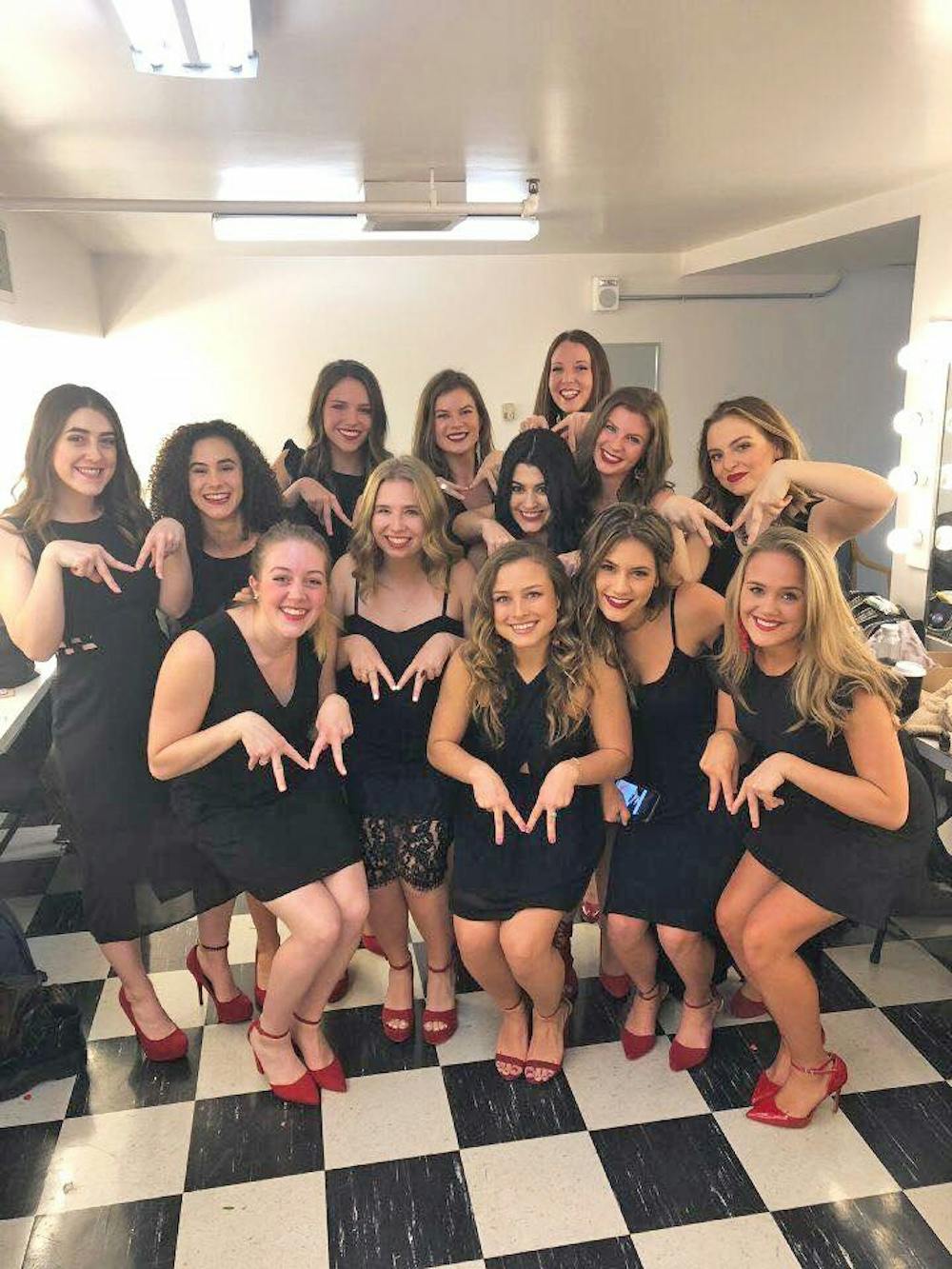As finals season looms over students, so do the uplifting and hard-to-ignore sounds of various musical groups on campus as they gear up for their annual winter concerts, reflecting the joy of the holiday season. The Miami University a cappella community is no exception: they are preparing for their own annual winter concert this Friday.
The Miami Misfitz, an all-women's a cappella group, will be branching out from the a cappella groups' traditionally Christmas-centered concert this year. In addition to their usual holiday selections, they will be including "Hava Nagila," sung in Hebrew, to celebrate Jewish heritage.
"It is technically a winter concert, so each group has liberty on how to celebrate it in their own way," said Elizabeth Bode, a sophomore Misfitz member. "Because of this, one of our new members suggested we sing 'Hava Nagila,' a traditional Jewish song."
This will be the first time that a Miami University a cappella group will sing a song entirely in Hebrew. The piece was suggested by freshman Misfitz member Jordan Myers.
"It was never an option we thought would be available to us, but with Jordan's experience, it really helps us to expand the group as a whole," Bode said. "We really have to focus on pronouncing the Hebrew text correctly as well as continuing to support our breath, and it's a challenge, but it's a good one."
Myers identifies as both Christian and Jewish. When the group was initially deciding what pieces to include in their winter performance, Myers's mind immediately went to her Jewish heritage.
"My mom and I love 'Hava Nagila' as a number because it is just so fun and so upbeat and exciting, and I thought it would be a very good audience piece and everyone seemed excited about it," said Myers.
"Hava Nagila," meaning "let us rejoice," is a traditional Jewish folk song usually sung at weddings and bat/bar mitzvahs. It is a celebrated tune originally composed in 1915 when Hebrew was being revived as a spoken language, after being obsolete for approximately 1,700 years. With the rise of the British victory in Palestine during World War I, many Jewish citizens joined together and began to sing various chants, which were later compiled by Abraham Idelsohn of Hebrew University to create the song.
Myers has played the piano for ten years and has an extensive music theory background. She was able to arrange an a cappella version of the piece herself, incorporating components of beat-boxing and body percussion in the composition. Body percussion, or "body music" is using the human body as opposed to a drum to produce sound. It incorporates stomping, clapping and snapping.
"I gave the rest of the group a pronunciation guide on how to say certain Hebrew words," Myers said. "But because everyone was really excited about it, it truly made the process more enjoyable and helped our group grow. I'm very grateful for it."
Many of the Misfitz's performances include arrangements composed entirely by students, and the group works together to blend their voices accordingly with each song, further enhancing the unanimity of their sound.
"We actually recruited five new girls this year, and they have helped us so much to learn and grow in our sound as a group, and they've challenged us as well, but it's been fun," Bode said.
Enjoy what you're reading?
Signup for our newsletter
In wake of the attacks on the synagogue in Pennsylvania earlier this year, Myers believes that her group performing "Hava Nagila" at the concert will reflect Miami's own Jewish population in a positive light.
"I'm very grateful that this song will be able to bring to light the positives involved in being a part of Jewish heritage, and to truly celebrate that aspect," Myers said.
The Misfitz will also be performing a mix-up of "Holly Jolly" and "Santa Claus is Coming to Town." Alongside the Misfitz, other Miami a cappella groups such as Open Fifth, the Treblemakers, Soul-2-Soul and Just Duet will perform at the event. The concert will be held at 7 p.m. on Saturday, Dec. 8 in Hall Auditorium.
straubhk@miamioh.edu




